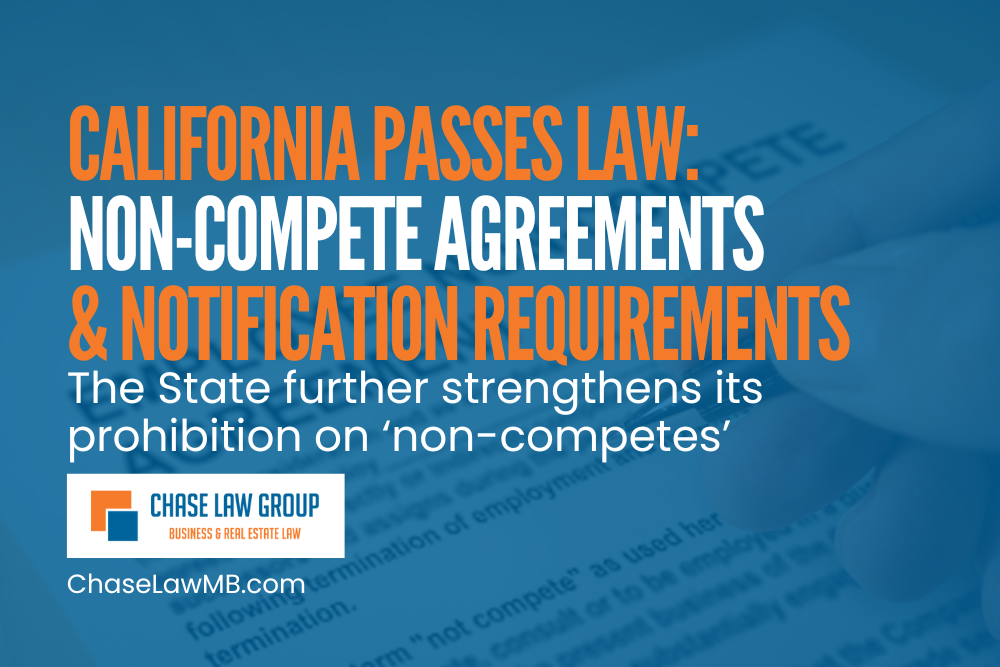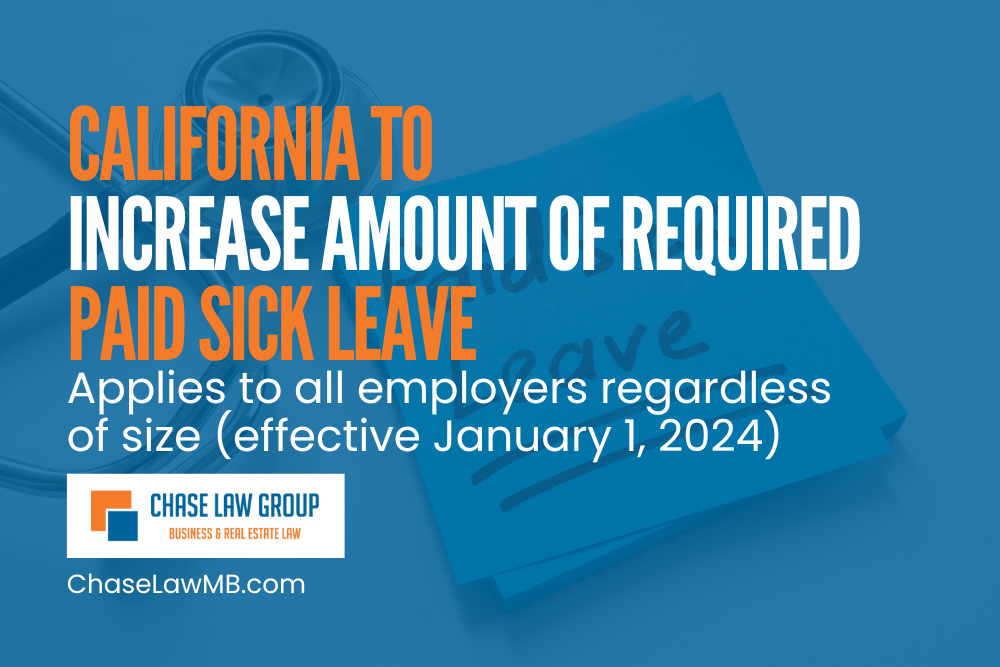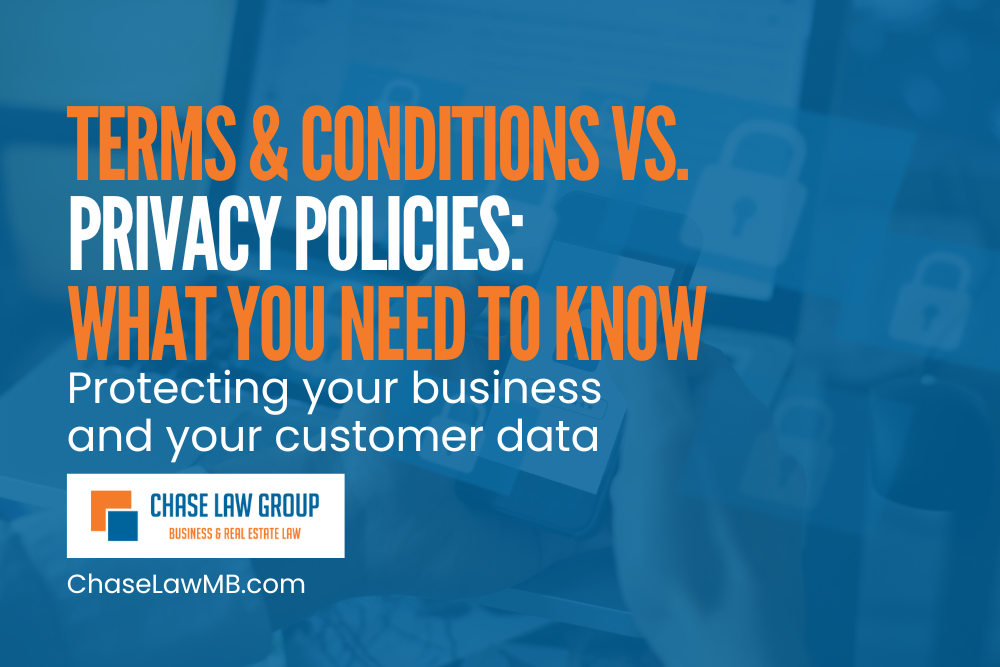
This year the California legislature and Governor Newsom enacted several new employment laws taking effect January 1, 2024. Here are the key changes you must be aware of for the new year. Increase in Paid Sick Leave Effective January 1, 2024, California employers of all sizes must provide 5 days (40 hours) of paid sick leave each year to employees. This is an increase from 3 days that is the current requirement. The new law continues to allow employers to either provide the paid sick leave on an accrual basis or via frontloading the leave at the beginning of each... READ MORE
California Passes Law Regarding Non-Compete Agreements, Including Employer Notification Requirements
By Admin October 30, 2023 Category: Employment

In recently passing two separate bills, Assembly Bill 1076 and Senate Bill 699, California has further strengthened its prohibition on non-compete agreements between employers and employees. California’s existing law, Business & Professions Code section 16600 already established that such agreements are void with very limited exceptions. However, the legislature remained concerned that some employers were still using non-compete agreements with employees as a deterrent. Therefore, California enacted Business & Professions Code section 16600.5 which effective January 1, 2024 will make it unlawful for an employer to even enter into a non-compete agreement with their employees. Employers who violate the new... READ MORE
California To Increase The Amount of Required Paid Sick Leave
By Admin October 30, 2023 Category: Employment

Effective January 1, 2024, California will require all employers to increase the amount of paid sick leave to their employees from the current requirement of 3 days to the new requirement of 5 days per year. The new law, SB616, signed by Governor Newsome on October 4, applies to all employers regardless of size. Note that certain municipalities provide greater paid sick leave, such as the City of Los Angeles. Employers that fall under those municipalities’ laws must provide the greater amount of paid sick leave and also comply with the requirements set forth below. The new law increases the... READ MORE
Terms & Conditions vs. Privacy Policies: What you need to know
By Admin October 30, 2023 Category: Business Law

Online interactions are the norm for anyone doing business today. As businesses use websites and mobile apps to connect with their audience, there are certain responsibilities that businesses have to follow not only as required by law but to ensure a positive relationship with customers. Two key areas: Privacy Policies and Terms & Conditions - often get confused, but both serve distinct roles with different focuses. Let's explore the differences and why both are essential, especially in the context of laws that may apply. What is the Purpose of a Privacy Policy?A Privacy Policy functions as a detailed disclosure of... READ MORE
Corporate Transparency Act & Beneficial Owner Information Reporting: What Your Company Needs to Know (Starts Jan 1 2024)
By Admin September 28, 2023 Category: Business Law

Starting on January 1 2024, your company may be required to report information about the people who own or control it to the US Treasury Department’s Financial Crimes Enforcement Network (FinCEN). FinCEN promotes national security and protects the US financial system from fraud and abuse by criminals and corrupt officials. In 2021, Congress passed the Corporate Transparency Act which creates a new requirement for many companies formed or operating in the US to report their Beneficial Ownership Information (BOI) to FinCEN. This reporting requirement aims to enhance transparency and accountability within corporate structures, contributing to a more secure and transparent financial... READ MORE
Fake Trademark Renewal Letters Are Still Out There – What To Watch For To Protect Your Business
By Admin August 22, 2023 Category: Business Law

“Is this a legitimate notice?” This is a question our clients ask us all the time when they receive official-looking documents. Quite often, we tell them that it is not and they can dispose of it in the proper receptacle. However, a business owner cannot take the chance of disregarding an actual governmental notice, so the utmost care should be exercised in evaluating these notices. In today’s online and digital world, the battle to protect intellectual property and business assets continues to be a chore. Fake trademark renewal letters are one of those scams that are still out there and... READ MORE
How to Use Severance Agreements to Protect Your Organization
By Admin August 22, 2023 Category: Business Law

A severance agreement is a release to be signed by an employee whose employment is separated in exchange for payment of money (or other consideration). This can be an effective tool to protect a company from future lawsuits and other risks. Below we discuss legal requirements when using a severance agreement as well as specific provisions that should be included in the agreement to protect the organization. Legal Requirements When Presenting A Severance Agreement Whenever severance agreements are used there are certain legal requirements that must be followed. As a preliminary matter, in order to be enforceable, the employee must... READ MORE
Can Joint Ventures Create Business Opportunities In Today’s Economic Climate?
By Admin July 18, 2023 Category: Business Law

Just like large companies, small businesses can leverage the opportunities that joint ventures can provide to thrive in today’s economy. Entering into a joint venture with other businesses and entrepreneurs could open the doors to gaining access to more capital, offering more services to clients and may help many small businesses thrive in today’s business landscape. In this article, we will explore some essential tips and considerations before entering into such partnerships. Reasons For Entering A Joint VentureEntering a joint venture can be a strategic move for small businesses to leverage the advantages that collaboration and partnership bring. By tapping... READ MORE
The Keys To Managing Remote Workers: What You Need To Know
By Admin July 18, 2023 Category: Business Law

Over the last several years, remote working has radically changed the traditional office workforce. With employees no longer physically present in the office, employers face new challenges in effectively managing remote workers to ensure their productivity and compliance with company policies and California’s extensive employment laws. While there are certainly advantages for employers to have remote workers such as savings in office space expenditures and improved employee morale, there are important considerations to be taken into account whenever remote working arrangements are being used by employers. Below are some key considerations and requirements that all employers should know. Develop and Implement... READ MORE
Location Matters: Minimum Wage Increase on July 1, 2023 is Based on Where Your Employees Work
By Admin June 28, 2023 Category: Business Law

The state of California currently sets the minimum wage rate at $15.50 per hour. However, for employers with employees that work in specific cities (see below) the employers must also comply with local city minimum wage requirements when it is higher than the state mandated rate. Effective July 1, 2023, employers with employees in the following local cities, and unincorporated Los Angeles, will need to increase their minimum wage rate of pay as follows: Los Angeles City: $16.78/hour;Los Angeles County (unincorporated areas): $16.90/hour;Malibu: $16.90/hour;Pasadena: $16.93/hour;Santa Monica: $16.90/hour; andWest Hollywood: $19.08/hour Employers whose employees work remotely in any of these... READ MORE

